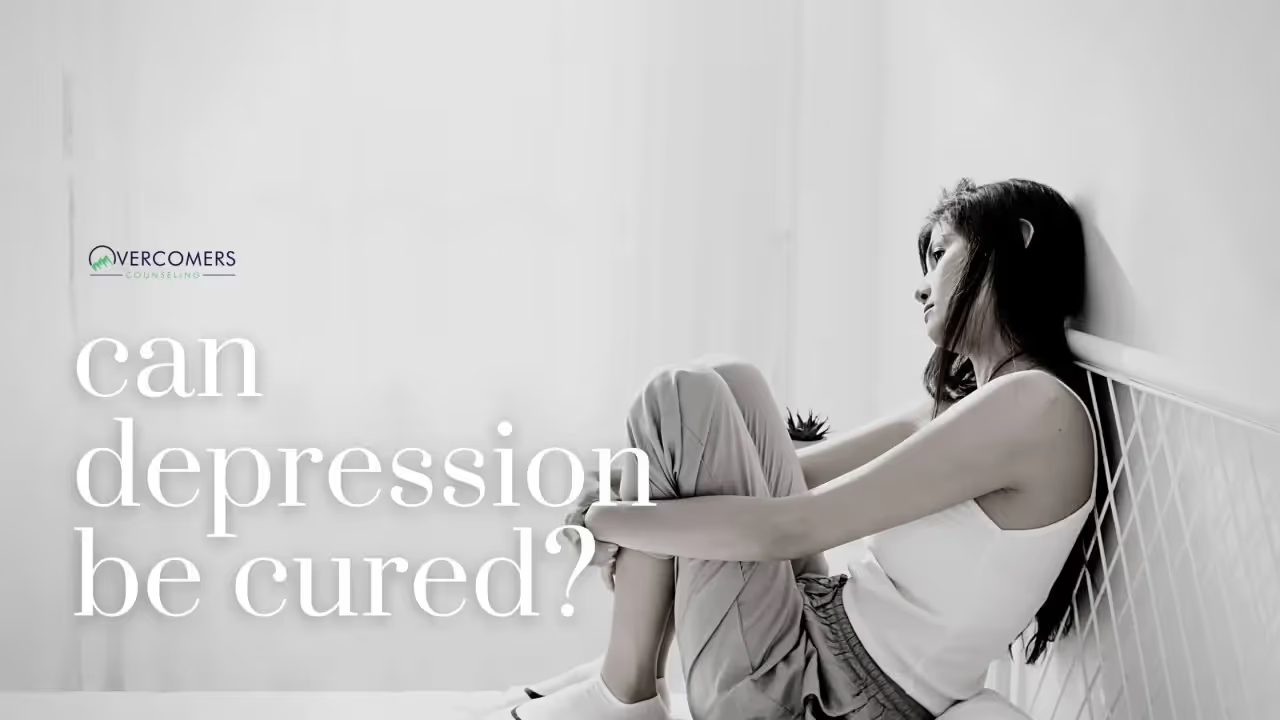If you or someone that you know is struggling with depression, you may be asking yourself: can depression be cured? You might also be wondering what you can...

If you or someone that you know is struggling with depression, you may be asking yourself: can depression be cured?
You might also be wondering what you can do to help cure your depression or someone else's. This is a natural thing to wonder when you or someone that you care about is struggling with an illness, even a mental illness. If you're asking yourself if depression can be cured, then you're taking the right step by seeking more information.
This article will help you understand the signs of depression and the steps that you can take to help cure your depression.
Before you can know whether depression can be cured, it's important to understand the signs of depression. Understanding the signs of depression will assist you in identifying the steps you can take to lessen its impact on your life,
One of the reasons that you're probably wondering if depression can be cured is that depression can be really hard to diagnose and sometimes it can be difficult to understand. You may be unsure if you or someone you love is even experiencing the signs of depression.
The biggest sign that you or someone that you love might have depression is an ongoing feeling of sadness.
Depression might also cause someone to experience a drastic loss of interest in the things that they normally enjoy. Used to love going out with friends, but now that feels like a chore?
Used to love biking, but haven't touched your bike in months? These changes in interest may be signs of depression.
Major depression can cause a range of not only behavioral but also physical symptoms.
The signs of depression may include changes in energy level, appetite, sleep patterns, ability to concentrate, daily behavior and habits, hygiene, or self-esteem. People experiencing depression typically experience a noticeable loss of interest in the things that they normally enjoy.
Most alarmingly, having depression can also cause people to experience thoughts of suicide. If you or someone you know is experiencing suicidal thoughts related to depression, reach out for help immediately!
According to research on the depression recovery rate, 20-30% of people who suffer from depression continue experiencing some symptoms long-term.
This may seem like a bleak outcome, but don't let this get you down. It means that most people recover from their depression and most people can see their signs of depression lessen with treatment.
However, it is important to know that while some symptoms may decrease over time, it is unrealistic to expect a magic cure or an instant cure for any mental illness. Treating depression should be seen as gradual. And, success in treating depression should be measured by improvement.
Given the disruptions in your life that the signs of depression cause, asking can depression be cured is a good place to start your healing process. Unfortunately, curing depression can often be a difficult and long process.
Recovering from a mental illness isn't as straightforward as recovering from a physical illness. Curing depression isn't the same as healing a broken bone.
Any kind of healing takes time, but the healing process for mental illness is more difficult to track.
Another major difference is that, unlike a broken bone, you won't know what to expect when healing.
Recovering from depression doesn't necessarily happen in a straight line.
Curing depression can be especially tricky as depression tends to affect every person differently.

While curing depression may not be simple, that doesn't mean that there isn't hope for curing depression. Treatment for depression has made a lot of progress as we've come to understand it more. There are steps that you can take to help to lessen your symptoms.
The first great step to curing depression by lessening its symptoms is exercise.
Your exercise routine doesn't have to be hard or vigorous. You can do something as simple as going for a walk. If you can, you might want to choose an outdoor activity since studies show that being in nature can boost your happiness and sense of well-being.
But, exercising indoors can still help lessen the symptoms of depression since exercise can temporarily boost feel-good chemicals called endorphins.
Another great step is eating healthy. Depression can often cause disruptions in appetite.
Make sure that you're eating enough and regularly. There are also certain foods that have been shown to boost your mood and decrease the symptoms of depression.
Adding more of these feel-good foods into your diet will help you along the path to recovery.
Feel-good foods include fatty fish like salmon and tuna, dark chocolate, bananas, oats, berries, nuts and seeds, coffee, and beans and lentils.
People wanting to cure their depression should also avoid alcohol and other drugs.
Another step you can take is getting enough sleep. As already mentioned, depression can affect your sleeping patterns so getting enough sleep is important to your healing process. Set a bedtime and stick to it even if you don't fall asleep right away.
Another great step to curing depression is challenging the negative thoughts that plague you when suffering from depression. Meditation is a great first step in learning to change your negative thoughts.
Perhaps the best way to cure depression or to lessen its symptoms is by seeking professional help.
A professional counselor can help you with all of these steps and maybe your best chance at curing your depression.
While there is no quick cure for depression, there are steps that you can take to lessen your symptoms and get your life back.
Don't let the thoughts caused by depression keep you from taking the steps to lessen your symptoms or seek the help that you need.
This isn't a life sentence. Talk to a friend or a counselor today and start curing your depression.
Addressing depression is crucial because it can significantly impact your quality of life, overall well-being, and ability to function in daily activities. Left untreated, depression can lead to more severe mental health issues, relationship problems, and physical health complications.
Ignoring depression can exacerbate symptoms and make it more challenging to manage over time. This can result in a negative impact on your personal, professional, and social life, leading to feelings of isolation and even thoughts of self-harm or suicide.
The duration of depression counseling varies for each individual, depending on the severity of their depression and their progress in therapy. Our therapists will regularly assess your progress and adjust your treatment plan as needed.
Depression is a mental disorder (a common one) that affects millions of people worldwide. It is characterized by persistent feelings of sadness, hopelessness, and loss of interest in activities once enjoyed.In this section, we will discuss the various types of depression, including major depressive disorder, persistent depressive disorder, and bipolar disorder.Gaining a deeper understanding of your depression is the first step in finding the right treatment and support.
Yes! There are many effective natural remedies that may be beneficial in managing depressive symptoms, such as participating in regular physical activity, changing your diet, getting adequate sleep, practicing relaxation techniques like yoga or meditation, journaling about your feelings/thoughts/emotions, seeking out social activities/support groups with other individuals struggling with similar issues
Yes! In fact, it's encouraged that you open up to your therapist so they can gain deeper insight into your individual situation and develop the most effective treatment plan possible that works best for you. Your therapist is there to serve as an unbiased source of support who will respect any thoughts or feelings shared within the session without judgment or criticism.